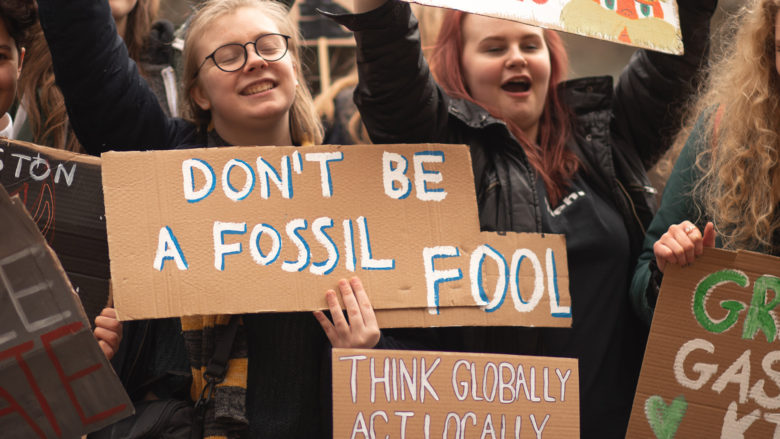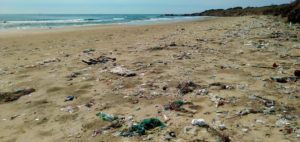E-fuels: A pretty weak fuel

Since the end of June, the EU environment ministers’ perspective of the future of (individual) mobility has been established: The end of combustion engines from 2035 has been decided, and cars equipped with classic diesel engines or gasoline-powered engines will no longer be allowed to be registered from then on. At least that’s what people thought.
But there is a loophole: The so-called e-fuels, synthetically produced fuels, which may continue to be refueled. This means that vehicles with internal combustion engines will still be allowed to be registered after 2035 if they can be proven to run only on e-fuels. However, the big question then arises: How will the verification work? Even after 2035, there will still be gasoline filling stations, and will the gas station attendant be monitoring them?
In any case, negotiations and lobbying are presently underway, as seen by the shift in VW management and phone calls between Porsche and German Finance Minister Christian Lindner.
The finance minister and the Porsche boss
It is one of the dominant topics in the German media: Oliver Blume will succeed VW CEO Herbert Diess. Blume, who formerly served as CEO of VW’s Porsche division, will take over as CEO of VW as early as September 1, 2022. In the future, however, he will not only manage Volkswagen’s fortunes, but also Porsche, which will be listed on the stock exchange as a distinct business.
The reasons for the change are manifold; Diess is likely to be doomed, among other things, by the failure of VW’s own software; in addition, the subsidiary Cariad turned out to be a billion-dollar grave. Criticism also came from the (powerful) VW works council when Diess toyed with the idea of cutting 30,000 employees. Most recently, there were also accusations that he was too little of a team player and had made mistakes in the China business. Sales of the Volkswagen Group in the world’s largest car market have slumped by 14 percent in 2021.
But it is also clear that, unlike Diess, his designated successor is regarded as an “e-fuel influencer of the German government,” as Der Spiegel writes. It is now also apparent that Blume boasted about leveraging his political influence to obtain the exemption rule for e-fuels.
He had received “almost hourly” messages from Lindner from the coalition negotiations of the “traffic light government”. Although this was subsequently dismissed as “exaggeratedly formulated” and Blume has meanwhile also apologized, the skewed image remains. Incidentally, the FPD (Lindner’s party) said that he had supported it because Blume’s convictions also corresponded to his own.
Blume with ambitious goals
Blume, for one, does not consider himself to be a supporter of internal combustion engines. In fact, according to the new CEO, 80 percent of the vehicles delivered by Porsche will be fully electric by 2030, which is even more than VW had announced under Diess (albeit with more models and more cars delivered overall).
Blume is also in charge of the electric Taycan. Still, there is concern in Germany that the VW Group is “letting the market regulate it, that the lobbying is on the rise, and that it is open to question what the “Group’s stance on e-fuels” means.
What? What?!!! 😱 He may have made mistakes, but #VW needs visionaries like @Herbert_Diess. An understanding should have been reached. Only with e-mobility do carmakers have a chance. Porsche and e-fuels are on the wrong track. They are needed for airplanes, but not for cars. https://t.co/juVtn17sKG
– Simone Peter 🌍 #Renewables (@peter_simone) July 22, 2022 (translated)
E-fuels: Low efficiency & very expensive
It is worth taking a closer look at the last question. After all, there are also e-fuel exceptions in Austria. In this country, too, it will still be possible to drive on synthetically produced gasoline and diesel after 2035. The question as to whether it makes sense (at least according to the current state of technology) is allowed: The efficiency of e-fuels is only around 10 to 15 percent – which, by the way, VW also sees as a problem. By comparison, electric cars have an efficiency of up to 80 percent.
In addition, the production of e-fuels is very energy-intensive: up to 27 kilowatt hours of electricity are needed to produce one liter of e-fuels. The Potsdam Institute for Climate Impact Research explains that producing e-fuels consumes about five times as much energy as using the electricity directly. “ÖAMTC, for example, summarizes: “The poor efficiency, the complex and therefore expensive production, and the lack of industrial plants all speak against a widespread market introduction in the near future”.
Electric cars cause less CO2
And: E-fuels also cause CO2. As the Tagesschau reports, a car powered by a mixture of e-fuels and gasoline would reduce emissions by only five percent compared to conventional internal combustion vehicles. The ratio is still weak for pure e-fuels, which are produced renewably: an electric vehicle would emit 53 percent less CO2 than a combustion car using synthetic fuels. So why use energy to generate e-fuels when you could also use it directly for charging?
Croatian startup MobilityONE aims at €1.5M to reach US and EU markets
Few advantages
The advantages of synthetic fuels are comparatively manageable: The filling station network could continue to be used, and compared to “classic” fuels, sulfur and soot emissions are lower.
As things stand, however, the system remains uneconomical:If e-fuel production continues at its current rate in the next years, a liter would cost roughly 4.50 euros as estimated. It’s hard to believe that anyone would pay that when part of the population is already having trouble at 1.50 euros for a liter. By the way, the calculation that e-fuels are “cleaner” only works if they are produced from renewable energy sources. The issue is already known from hydrogen.
E-fuels for the aviation and shipping industries
So why is research being done on e-fuels at all? There are various reasons, both economic and political. There are areas where fuel equivalents can make perfect sense, such as in the aviation industry. The EU is calling for two percent of fuels in the industry to be climate-friendly from 2025, 37 percent by 2040 and at least 85 percent by 2050.
However, experts have been warning for some time that e-fuels alone will not be enough. In addition, Europe’s airlines are also resisting the targets; their concern is that the competition from other continents will become uncatchable in terms of price. It is clear, however, that only full cost transparency will lead to drastic changes in the long term. But we won’t be flying electrically any time soon, so the development is understandable in principle.
The situation is similar in the shipping industry. The ADAC, for example, writes in an analysis of the future prospects of e-fuels:
Due to their low efficiency, experts do not envisage e-fuels being used in passenger automobiles, but rather in transportation regions where neither electric nor fuel cell propulsion is a possibility. This would be the case above all in aircraft and ships. This is because extremely large batteries or hydrogen tanks would have to be carried, leaving too little of the transport volume. Synthetic fuels, on the other hand, do not take up more space than kerosene and diesel because of their high energy density, and they do not weigh more either.
Political wrangling
Domestic politicians are divided. Climate Minister Gewessler defended the agreement, pointing out that otherwise there would probably have been no common denominator at all. Greenpeace sees a “castle in the air” and the VCÖ is also skeptical. The ÖAMTC, on the other hand, already has a problem with the ban on internal combustion vehicles and sees social injustice and “non-target” plans.
It is possible to “make the existing fleet more climate-friendly” (i.e. all cars that are already on the roads), however, it should then “not come to a general ban on combustion engines.” This is also subscribed to by the FPÖ, which sees an “ideology-driven dead end” – albeit in the general ban on combustion engines.
The European industry also fears that it will become even more dependent on Asia – where most batteries come from. Logically, then, EU carmakers want to continue using their engines. “The EU must not slam the door on a climate-neutral future for the internal combustion engine through sustainable synthetic & biofuels. This endangers our business location and shifts raw material dependency to China” says WB Secretary General and ÖVP Member of Parliament Kurt Egger.
The popular 911
The same could also be turned around. Let’s take another look at Germany-and the question of why Oliver Blume and his cohorts are so committed to e-fuels. Porsche in particular relies on roaring engines – the 911 is “more popular than ever”. Even though the iconic 911 could be “electrified,” a hybrid version is planned. In other words, the company wants to be able to offer the cult car as a combustion engine in the future, even after 2035. However, Porsche is well aware that e-fuels will not play a decisive role until then.
Nevertheless, the lobbying makes sense: If e-fuels are permitted and accepted, classic combustion cars could still be allowed (even if this is not currently planned), because they can be refueled with e-fuels. Another concern is who will regulate this. Where VW will go in the future is also still open – but it is clear that the strategy under Oliver Blume will change and the e-fuel debate will probably accompany us for a few more years.
Croatian car maker Rimac reaches valuation of €2 billion after a recent investment




























